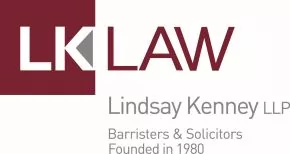- within Finance and Banking topic(s)
- in United States
What are the real legal costs which a lender can recover in a commercial foreclosure? Is it different for a residential mortgage?
Every mortgage contains a term which says the borrower will pay the costs of legal enforcement. B.C. has standard terms. Like many mortgages they call for what is called "solicitor client costs". That is an old term which means costs on the basis of the bill rendered by the lenders lawyer to his or her client – the lender. Sometimes we call that special costs on a full indemnity basis, but it really means the actual legal fees and disbursements.
When lawsuits are decided by the court, the costs are awarded to the successful 'party' against the unsuccessful 'party'. These have always been called "party and party" costs. They are assessed on the basis of specific steps which are listed in the rules and which when totalled represent a fraction of the actual value of the legal fees incurred. They can be assessed on three scales; higher scales are ordered where the losing party is guilty of misconduct in the litigation.
Often lenders seek costs on a full indemnity basis specified in their mortgage, but it is not that simple. Under S. 20, ('Section 20') of the Law and Equity Act, the court "may" order costs as "party and party" costs despite a covenant or term of a mortgage to the contrary and Supreme Court Rule 21-7 requires costs for uncontested foreclosure to be assessed as party and party costs at the lowest scale. In the result the court will decide if a particular case is one where the lender is entitled to costs assessed at the higher rate.
The legislature chose only to refer to a term or covenant in a mortgage in S. 20. The legislature could have, but did not, refer to a term or covenant in a loan agreement or in other forms of non-mortgage security commonly granted to commercial lenders. That omission must be considered intentional which would mean that s. 20 was principally aimed at legal costs in residential foreclosures.
Over the years the B.C Courts have set out certain considerations that would guide the exercise of its discretion under S. 20.
- Whether, although brought as a mortgage foreclosure, other agreements are enforced as part of the proceeding (e.g., personal property security, assignments of receivables, charges on equipment, inventory or intellectual property, and guarantees) which include full indemnity (solicitor client) cost provisions;
- The sophistication of the transaction and involvement of legal counsel in the preparation and execution of the lending documents;
- Whether the mortgagor has substantial equity in the land;
- Whether the matter is a commercial matter where the use of the lender's funds was intended to generate an opportunity to profit or earn income;
- Whether the creditor granted time or there were delays in prosecuting the matter such that the mortgagor had extended use of the borrowed funds post default; and whether it is unfair for the borrower to use the lender funds at the effective interest rate;
- The overall complexity of the proceedings including the number of parties, and extent of the security and collateral.
These considerations seldom apply in uncontested residential foreclosures where party and party costs on the lowest scale is the rule. Each commercial loan is unique. In commercial loans, where the matter satisfies a number of the factors above, the courts have tended toward ordering full indemnity costs but will still award party costs where it is decided that the foreclosure proceeding is straightforward and uncontested.
Recently, inPeace River Partnership v. Cardero Coal Ltd.,2023 BCCA 351, outside the foreclosure context, the court ruled that where a contract provides for full indemnity costs, then the court ought to enforce that right unless the opposing party establishes reasons not to do so.
Although the foreclosure court has not said so (no doubt because it is limited by the statutes referenced above) there is no reason why a foreclosing lender's cost recovery ought to be less than that for other litigants. Also, for larger loans there should be costs awarded which correspond to the burden on the lender. We argue that if the respondents cannot justify a departure from the agreed contractual costs provisions, costs should be ordered on a full indemnity basis.
Over all lenders can expect lower cost awards in straightforward and uncontested commercial loans and residential loans. Large complex loans will qualify for full indemnity costs. The court may also make awards of special costs which fall in the middle.
About Mackrell International – Canada - Lindsay Kenney LLP is a full service business law firm with offices in Vancouver and Langley, BC and a member of Mackrell International. Mackrell International – Canada is comprised of four independent law firms in Alberta, British Columbia, Ontario and Quebec. Each firm is regionally based and well-connected in our communities, an advantage shared with our clients. With close relations amongst our Canadian member firms, we are committed to working with clients who have legal needs in multiple jurisdictions within Canada.
This article is intended to be an overview and is for informational purposes only.
[View Source]

